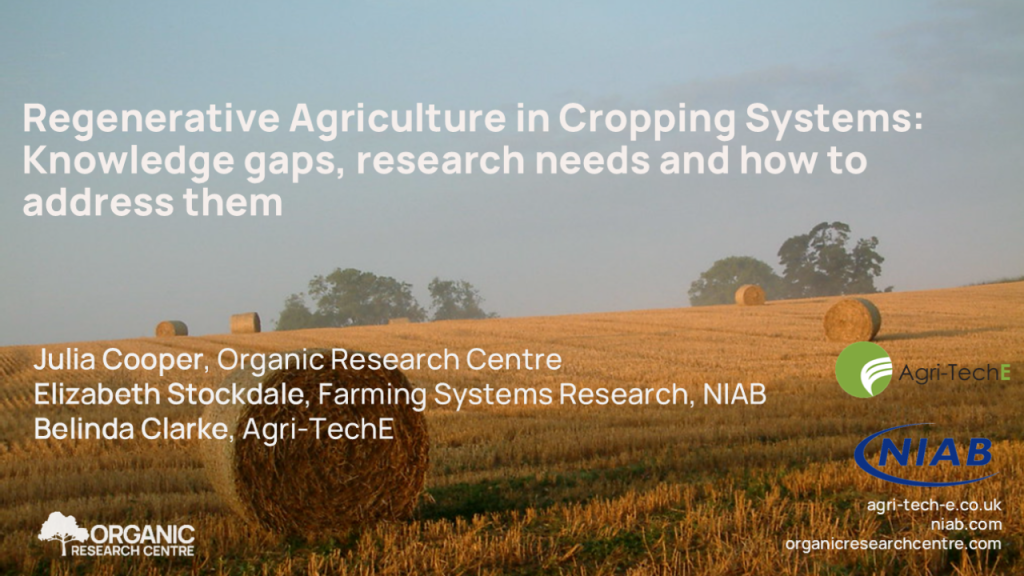A groundbreaking Rapid Evidence Assessment (REA) has been led by Dr. Julia Cooper at the Organic Research Centre (ORC) to map the landscape of UK plant and soil science research within the context of regenerative agriculture. This comprehensive analysis highlights key knowledge gaps and provides a roadmap for future research priorities.

Regenerative agriculture, or ‘regen ag’, has rapidly gained traction as an innovative approach to farming that prioritises soil health, biodiversity, and climate change mitigation. While its principles align with longstanding organic and conservation agriculture practices, the movement has been propelled forward through effective advocacy and increasing interest from UK farmers, researchers, and policymakers.
The first phase of the project engaged stakeholders through interviews and workshops, identifying key themes, including agronomy, variety development, soil health, climate change mitigation, system design, and economics. This initial work informed discussions at the Cambridge Future of Agriculture Conference (March 2024), refining the research priorities into six overarching categories:
The Challenges Publications (March 2025) offer synthesised summaries of the study’s findings, emphasising key themes and gaps in knowledge.
The results offer valuable insights for researchers, policymakers, and funding bodies to guide investment and support the transition to more regenerative farming systems.
The findings were also presented at Groundswell 2024, in conjunction with the Agricultural Universities Council UK’s farmer research priorities review.
D1: Database of information sources and key research findings/knowledge gaps can be looked at as a “discussion paper”. It was used to frame discussions at the Cambridge Future of Agriculture Conference.
D2: A summary of key knowledge gaps, research needs and ways to address them is the final report, incorporating stakeholder workshop & outcomes from the Cambridge Future of UK Agriculture Conference; it is the comprehensive in-depth analysis of state of knowledge and gaps on the challenges that were refined at the conference.
The Organic Research Centre (ORC) is an independent research charity working for better and
more sustainable farming systems that protect the environment and provide good food for
everyone. It drives its own research agenda to tackle global issues by acting locally and finding
community-based solutions for farmers and their supply chains. Its vision is that, together, we’ll
deliver the transition to naturally healthy and resilient farming systems by:
Established in 1980, for over 40 years the charity has played a central role in the development
organic food and farming research, knowledge exchange and policy.
